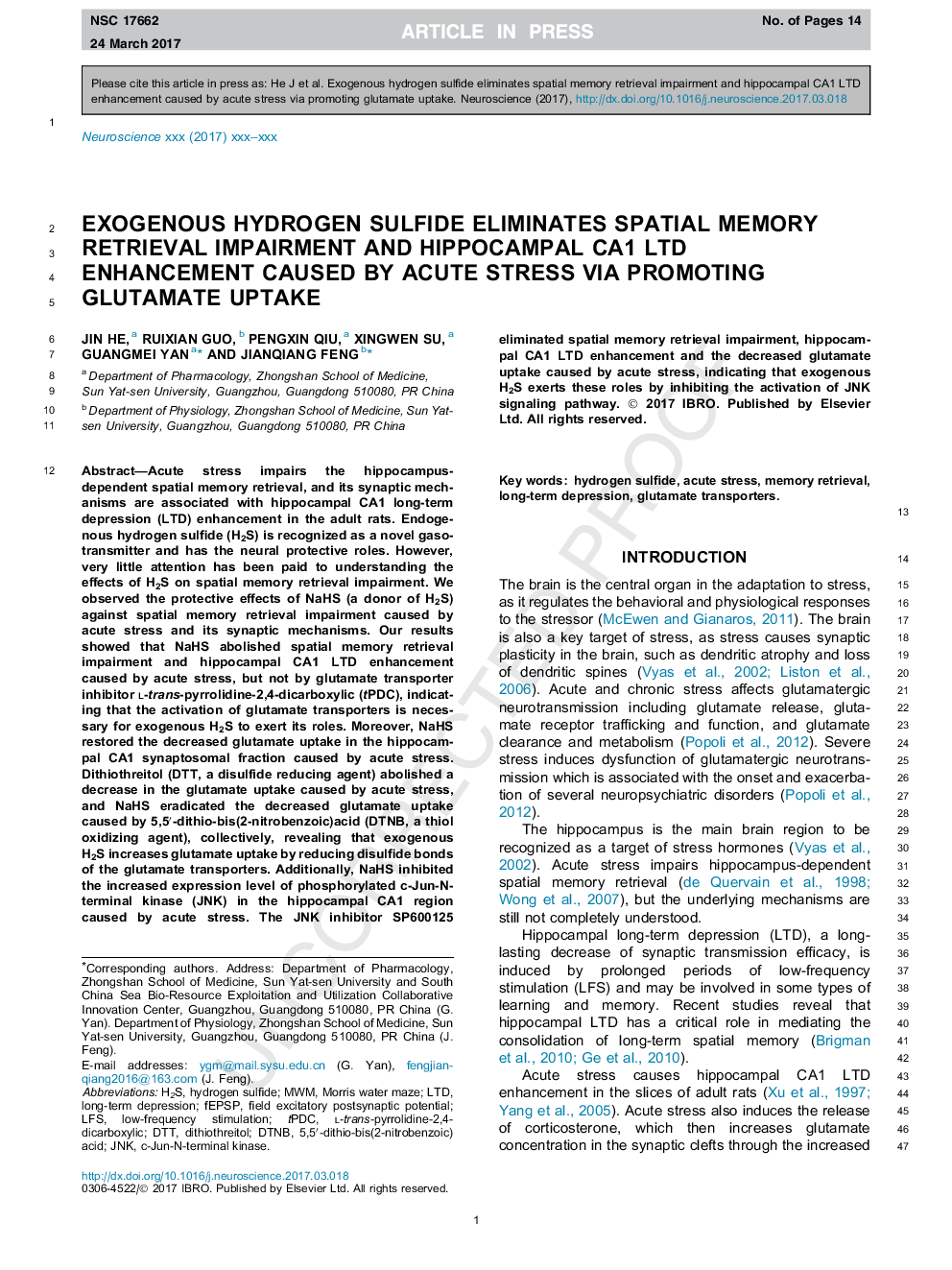| Article ID | Journal | Published Year | Pages | File Type |
|---|---|---|---|---|
| 5737691 | Neuroscience | 2017 | 14 Pages |
Abstract
Acute stress impairs the hippocampus-dependent spatial memory retrieval, and its synaptic mechanisms are associated with hippocampal CA1 long-term depression (LTD) enhancement in the adult rats. Endogenous hydrogen sulfide (H2S) is recognized as a novel gasotransmitter and has the neural protective roles. However, very little attention has been paid to understanding the effects of H2S on spatial memory retrieval impairment. We observed the protective effects of NaHS (a donor of H2S) against spatial memory retrieval impairment caused by acute stress and its synaptic mechanisms. Our results showed that NaHS abolished spatial memory retrieval impairment and hippocampal CA1 LTD enhancement caused by acute stress, but not by glutamate transporter inhibitor l-trans-pyrrolidine-2,4-dicarboxylic (tPDC), indicating that the activation of glutamate transporters is necessary for exogenous H2S to exert its roles. Moreover, NaHS restored the decreased glutamate uptake in the hippocampal CA1 synaptosomal fraction caused by acute stress. Dithiothreitol (DTT, a disulfide reducing agent) abolished a decrease in the glutamate uptake caused by acute stress, and NaHS eradicated the decreased glutamate uptake caused by 5,5â²-dithio-bis(2-nitrobenzoic)acid (DTNB, a thiol oxidizing agent), collectively, revealing that exogenous H2S increases glutamate uptake by reducing disulfide bonds of the glutamate transporters. Additionally, NaHS inhibited the increased expression level of phosphorylated c-Jun-N-terminal kinase (JNK) in the hippocampal CA1 region caused by acute stress. The JNK inhibitor SP600125 eliminated spatial memory retrieval impairment, hippocampal CA1 LTD enhancement and the decreased glutamate uptake caused by acute stress, indicating that exogenous H2S exerts these roles by inhibiting the activation of JNK signaling pathway.
Keywords
Related Topics
Life Sciences
Neuroscience
Neuroscience (General)
Authors
Jin He, Ruixian Guo, Pengxin Qiu, Xingwen Su, Guangmei Yan, Jianqiang Feng,
